A Canticle for Leibowitz
A Canticle for Leibowitz, written by Walter M. Miller, stands as one of the all-time classic post-apocalyptic science fiction novels. Spanning thousands of years, the story chronicles humanity's attempt to rebuild from the ashes of nuclear war. It unfolds within a Catholic monastery, where the monks of the Albertian Order of Leibowitz toil to collect and preserve scientific knowledge, awaiting a time when humanity is again ready—and worthy—to wield it. Suffice to say, the tale does not end well.
Hardcover. First Edition, First Printing. Octavo, bound in quarter cloth with mauve colored boards. New York: Lippincott, 1960. Hugo Award winner (1961). Pringle, Science Fiction: The 100 Best Novels (30). #10763.
Fine in near fine dust jacket with some darkening and soiling along spine but only visible on the verso side. Externally, the jacket is bright and attractive, with only slight rubbing and minor wear to extremities. A lovely copy.

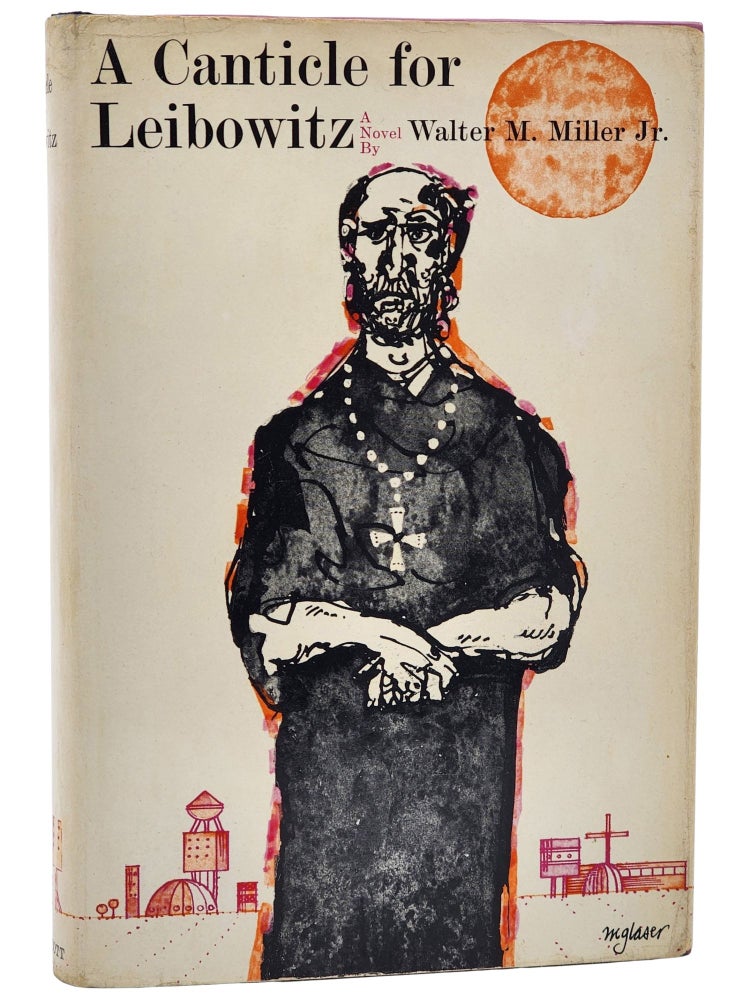
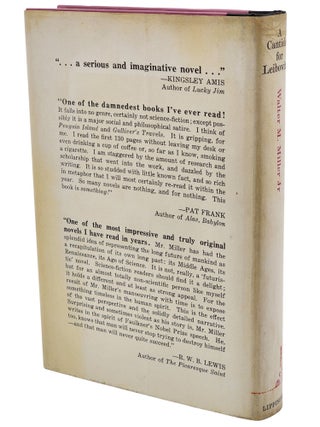
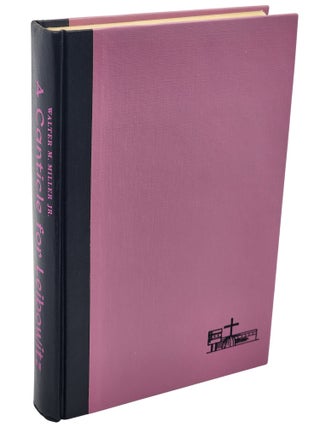
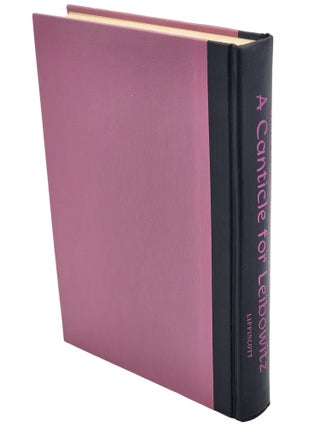
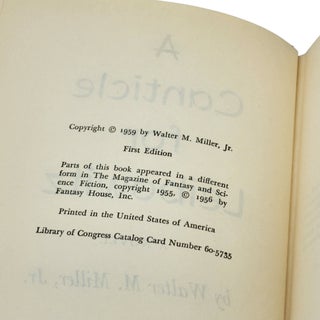
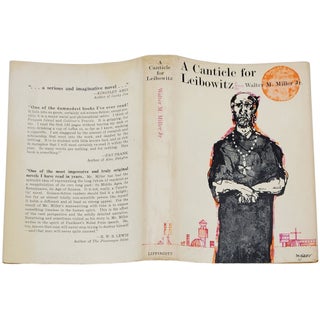
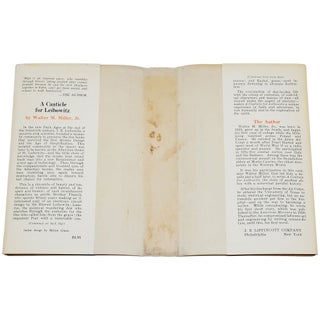
A Canticle for Leibowitz is a masterful work of post-apocalyptic science fiction penned by Walter M. Miller. This celebrated novel stands as a monument in the genre, deeply exploring themes of knowledge, religion, and human nature set against the backdrop of a world recovering from nuclear devastation.
The narrative unfolds over the course of thousands of years, weaving a tale that begins in a dark age following a cataclysmic nuclear war. In this bleak setting, remnants of humankind struggle to rebuild, with much of the prior civilization's knowledge lost or willfully destroyed in the aftermath of the disaster. Amidst this chaos, the Albertian Order of Leibowitz, a group of dedicated Catholic monks, embarks on a sacred mission to preserve the last vestiges of scientific and philosophical understanding.
Within the walls of their secluded monastery, these monks painstakingly transcribe, study, and safeguard ancient texts and artifacts, serving as the custodians of humanity’s intellectual heritage. Their hope is to keep the flame of knowledge alight until society is once again prepared, and deemed worthy, to embrace the wisdom of the ancients.
As centuries pass, the novel explores the cyclical nature of history, with humanity rising, falling, and rising again, ever teetering on the brink of self-annihilation. Throughout this epic sweep of time, the monks of the Albertian Order of Leibowitz remain steadfast in their sacred duty, bearing witness to the relentless tide of human ambition, folly, and resilience.
The tale is meticulously structured, unfolding in three distinct parts that correspond to different eras in this imagined future. Each section not only advances the overarching narrative but also probes deep philosophical and ethical questions regarding the role of knowledge, the responsibility of those who wield it, and the inherent tendencies of human beings.
In his later years, Walter M. Miller became increasingly reclusive, suffering from depression and withdrawing from friends, family, and even his literary agent. Miller worked on a sequel to A Canticle for Leibowitz, nearly finishing the 600-page manuscript before tragically ending his own life on January 9, 1996, shortly after his wife's death. The sequel, titled Saint Leibowitz and the Wild Horse Woman, was posthumously completed by science fiction writer Terry Bisson, as per Miller's wishes, and published in 1997.